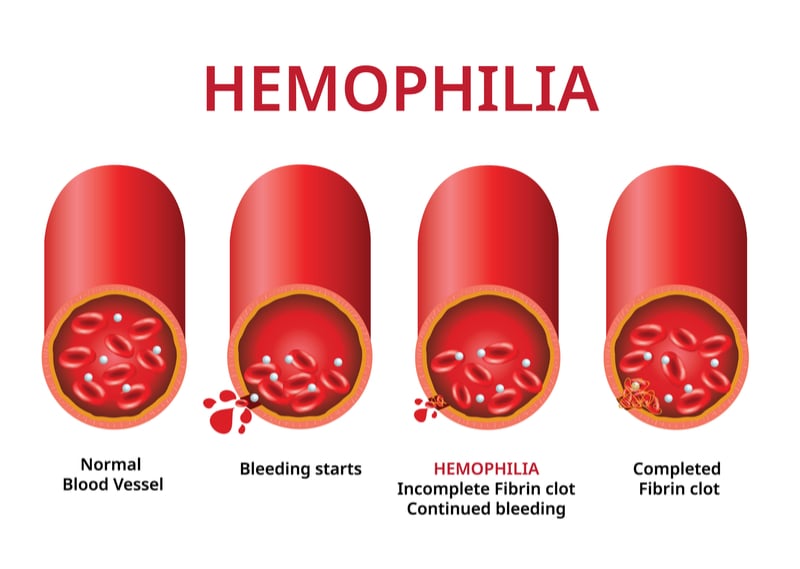What is Hemophilia
Hemophilia is a genetic disorder that affects the blood’s ability to clot properly. It is primarily an inherited condition and is more commonly seen in males. People with hemophilia have deficiencies or abnormalities in certain clotting factors, which are proteins necessary for normal blood clotting.
There are different types of hemophilia, including Hemophilia A and Hemophilia B, which are caused by deficiencies in clotting factor VIII and clotting factor IX, respectively. These clotting factors are essential for the formation of blood clots to stop bleeding.
Individuals with hemophilia may experience prolonged bleeding after an injury, excessive bruising, spontaneous bleeding into joints and muscles, and in severe cases, even internal bleeding. Minor cuts and bruises may result in prolonged bleeding, and injuries that involve joints can lead to pain, swelling, and limited mobility.
The severity of hemophilia can vary, with some individuals experiencing frequent bleeding episodes and others having milder symptoms. Hemophilia is typically diagnosed through blood tests that measure the levels of clotting factors in the blood.
Treatment for hemophilia involves replacing the missing or deficient clotting factor through intravenous infusions of clotting factor concentrates. This treatment is known as replacement therapy and helps restore the blood’s ability to clot. With proper management and access to treatment, individuals with hemophilia can lead relatively normal lives.
It’s important for individuals with hemophilia to take precautions to prevent bleeding and to inform their healthcare providers, including dentists and surgeons, about their condition to ensure appropriate care is provided. Genetic counseling is also recommended for families with a history of hemophilia to understand the risks of inheritance and make informed decisions.
It’s worth noting that while hemophilia is primarily an inherited disorder, in rare cases, it can also occur due to spontaneous genetic mutations, where there is no family history of the condition.
All Replies
Viewing 0 reply threads
Viewing 0 reply threads
- You must be logged in to reply to this topic.







Very educative. Keep it up Student Village